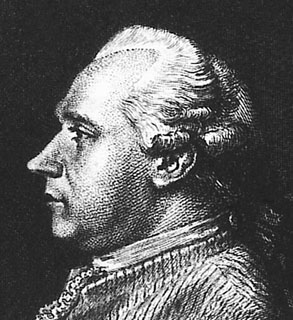Just one day out of port, an American merchant ship bound for France was stopped by a British frigate in a chance sighting. The naval captain decided to conduct a search for contraband, unstamped goods, or, as a possibility, treasonous materials put forth by the growing American Rebellion. During the search, officers came upon a series of letters in the care of Silas Deane, a merchant from Connecticut masquerading as a trader from the Bahamas, which endorsed him as a representative of the Continental Congress to France. Further reading and interrogation proved that Deane was meant to garner French and European support in the form of arms, supplies, cash, and even soldiers. Deane was taken aboard the frigate, and the merchant ship was sent on its way, told not to return to America and give word of Deane's capture.
Silas Deane, born December 24, 1737, had been a proponent of the American movement from nearly its beginning. He had come from a wealthy farming family and made a name for himself after graduating from Yale through practicing law and teaching. Further, he married the widow Mehitable Webb, gaining from her a family of six, a mansion, and a thriving merchant business. Elected as a representative to the Continental Congress, Deane was instrumental along with John Adams of Massachusetts in establishing the significance of an American Navy (some of which would be built at his father-in-law's shipyard). Deane himself would donate a great deal to the cause, helping to finance the men who would seize a great victory at Ticonderoga. While on the secret Committee of Correspondence, Deane would be chosen to go to France on an undercover diplomatic mission to gain international support from what had been an enemy at war only a decade before.
Notice of Deane's capture did not come to the Continental Congress until nearly two months after the fact. In the meantime, the Americans had been enjoying a good deal of victories such as a raid on the Bahamas by marines and the British evacuation of Boston. The growth of support was enough to push through the Declaration of Independence as a reaction to Britain's declaration of a blockade, legally a wartime action. However, it would be some time before the Americans could put together another secret mission to France, eventually sending Philadelphian Benjamin Franklin and, later, John Adams. Without an initial framework, the Americans asked too much and would ultimately be turned away with little more than a pittance and a few nobles-turned-mercenary.
Meanwhile, the tide of war turned against the Americans. In the south, Cherokee encouraged by the British attacked in an arc all along the frontier. Battles in the north under Washington and Arnold were repeated defeats. In constant retreat, the soldiers took winter camp in 1777 at Valley Forge, where Washington struggled to train with almost no money or equipment. Without a successful gamble as he had taken with the surprise attack on the Hessian soldiers, Washington lost the majority of his troops. By 1778, the war had gone off the battlefield and to smaller struggles primarily in the south and frontier. British troops suppressed rebellion fully in 1779, and, in 1780, former general Benedict Arnold assisted in the proceedings to clear misguided rebels from the true instigators. Men like Thomas Paine and Samuel Adams were hanged while others such as Washington, Adams, and Jefferson were stripped of property and shipped to new colonies in Australia.
Silas Deane would similarly be punished by sharp fines, long stints in prison, and a new life of hard labor in South Africa. His second wife, Elizabeth, had died in 1777, but his fortunes would grow again as he remarried and became an effective administrator with his loyalties proven. He would never see his native America again.
The colonies would return to British loyalties, gradually looking to Redcoats as protectors from Indian attacks and alliance rather than their imperialist enemies. Other revolts would take place in the course of the nineteenth century, each ushering in new schemes of private rights and systems of government, similar to revolts that would be fought what would become the Dominion of Canada. Still, the Great Experiment of republicanism proved a failure, and the ideals of rule without a king would be held only by mad anarchists or communists, who would ultimately create autocratic dictators rather than constitutional royals who would act as an anchor in a world changing at an increasing speed.
–
In reality, Silas Deane arrived in France and established negotiations with the French Foreign Minister, Comte de Vergennes. He secured two hundred brass cannons, thirty mortars, weapons, ammunition, tents, and gear for 30,000 men, in addition to key figures such as Lafayette and Baron von Steuben who would train Americans to military prominence. However, upon the arrival of Franklin and Arthur Lee, Deane was accused of profiteering, disgraced without proof, bankrupt, and barred from the United States as a traitor. He would die of mysterious illness in 1789 after finally settling affairs in Europe, possibly poisoned by double agents.

Wow, I didn't know French support for the Revolution depended on one man. If the French support disappears, obviously everything changes.
ReplyDelete